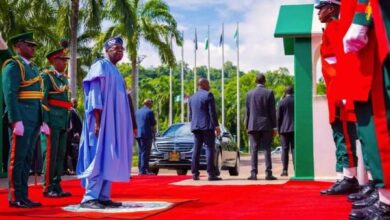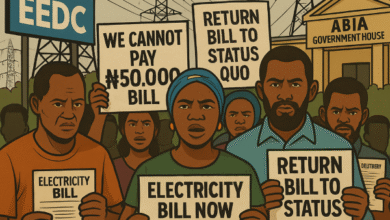EFCC has secured 2,781 convictions so far, says Chairman

The Chairman of the Economic and Financial Crimes Commission (EFCC), Mr Abdulrasheed Bawa, said that the commission had secured 2,781 convictions as at Oct. 24 on some persons arrested for various financial crimes.
Bawa stated this on Tuesday in Lagos during a one-day workshop on financial crime reporting organised for some journalists by the commission.
The chairman, who spoke to the participants through the e-conference platform, said that the commission was happy and proud to have recorded such a number of convictions, stressing that the commission was committed to making more arrests and convictions.
He said that assets running into several billions of naira had also been recovered by the Commission.
The commission’s boss said that the workshop was designed to further promote the ethos of journalism profession and also impart participants with proficiencies, particularly, in reporting financial crimes.
Bawa noted that the gathering was an evidence of the importance which the commission attached to the media as a partner in the fight against economic and financial crimes.
He pointed out that the role of the media in projecting the work of the EFCC over the last 19 years had been remarkable.
Bawa said that some of the financial crimes perpetrated could have been prevented if members of the public had the right information, stressing that it was for this reason that the commission was intensifying public enlightenment engagements with stakeholders.
He said in a few weeks’ time, the commission would witness the formal launch of its radio station.
“It is only fitting that we reciprocate your contributions by seeking to further expand your capacity to deliver this onerous national duty in expanding the space of transparency and accountability in our public life.
“Even with all the milestones recorded by the Commission since its inception, the EFCC has never been under the illusion that it can fight and win the war on corruption without the support of other stakeholders.
“As the fourth estate of the realm, the media has a constitutional responsibility to fight corruption and other forms of economic and financial crimes,” he said.
The EFCC boss called for greater collaboration and information sharing between the media and the Commission, stressing that journalists through their various contacts could gather information that would help the commission to serve the country better and faster.
On the forthcoming 2023 general elections, Bawa said that the commission was beaming it searchlights on some politicians.
He said the commission was also paying serious attention to the activities of some lawyers, car dealers, estate operators, precious stone dealers, accountants, construction companies amongst others, stressing that investigations revealed that they had become channels of money laundering.
The chairman urged journalists to get familiar with the new money laundering law so as not to run afoul of its provisions and to help educate other citizens.
“I am sure that most of us are aware of the legislative reforms that recently birthed the Money Laundering (Prevention and Prohibition) Act, 2022.
“There are certain provisions of this new law that I believe will affect you directly or indirectly. One is secrecy of financial transactions.
“The new law criminalises the operation of numbered accounts and also mandates financial institutions to ascertain the beneficial owners of accounts before opening such accounts,” he noted.
The News Agency of Nigeria (NAN) reports that participants were drawn from the crime, the judiciary and the financial beats.
Papers were presented on the challenges of prosecuting economic and financial crimes in Nigeria, best practices in financial crimes’ reporting and peculiarities, trends, typologies and the challenges of cybercrimes’ enforcement in Nigeria.











